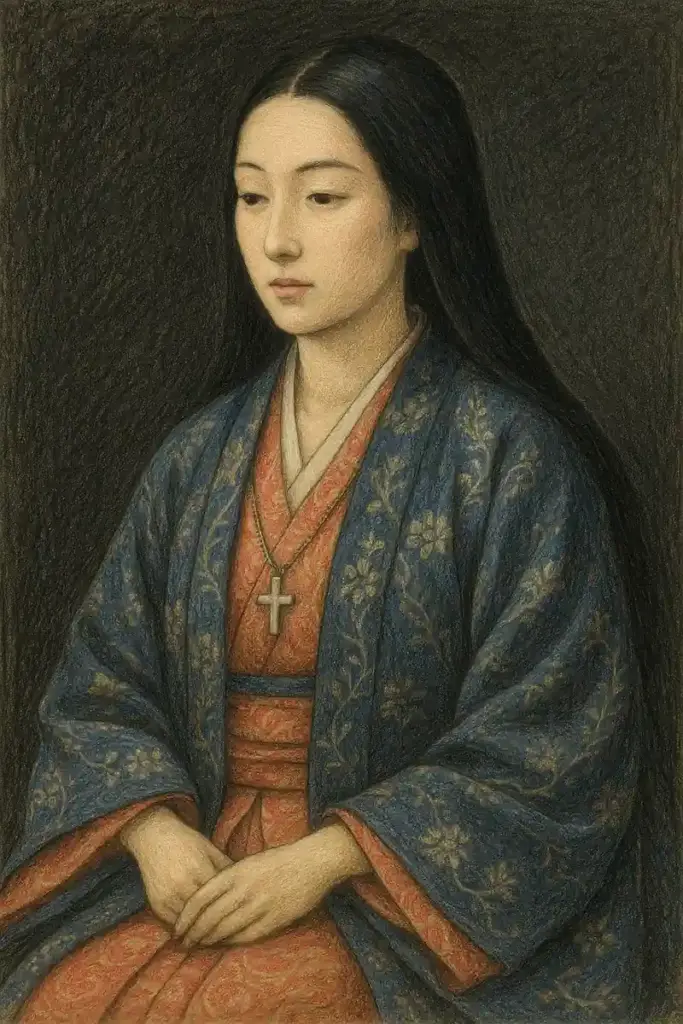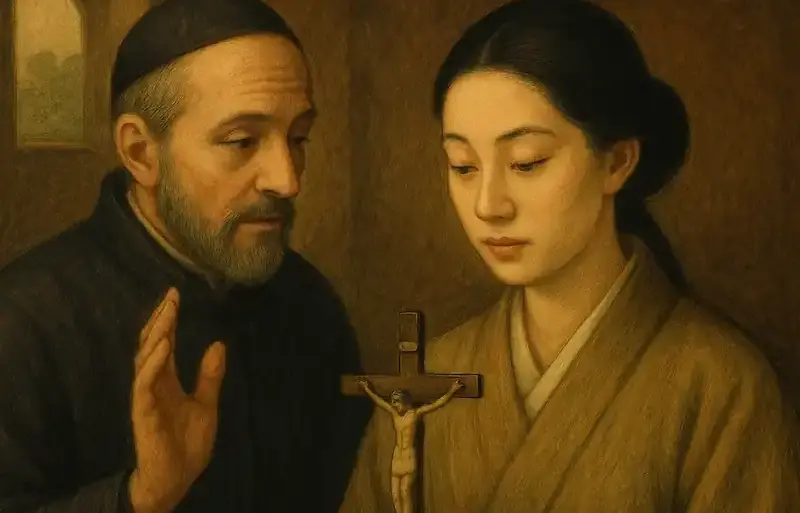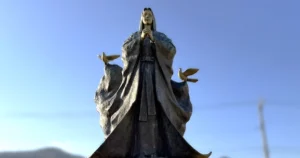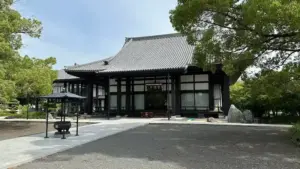
The Noble Spirit Who Defies the Darkness of SHŌGUN
If you’ve been drawn into the world of SHŌGUN, you may have noticed fleeting moments of grace and conviction amid the storm of ambition, war, and betrayal. Within this harsh landscape, one figure stands apart—not as a wielder of power, but as a woman who resisted being consumed by it. She is a quiet but luminous presence, echoing the tragic beauty of a real-life noblewoman: Hosokawa Gracia (1563–1600), known in Japanese as 細川ガラシャ—the historical inspiration behind SHŌGUN’s Lady Toda Mariko.
In the drama, Mariko does not assert dominance through political scheming or battlefield strategy. Instead, she represents something rarer—a steadfast soul whose values cannot be corrupted. Her story, marked by personal loss, forced isolation, and spiritual awakening, mirrors Gracia’s own journey: the transformation from a warlord’s daughter into a Christian convert whose death would come to symbolize both martyrdom and dignity.
Much like Mariko, the historical Gracia was born into chaos: the daughter of the infamous rebel Akechi Mitsuhide and the wife of Hosokawa Tadaoki, a prominent daimyo loyal to Toyotomi Hideyoshi. When her father betrayed Oda Nobunaga in the Honnō-ji Incident, Gracia was thrust into a perilous position—caught between loyalty, faith, and survival. Despite the mounting pressure of her time, she chose to uphold her beliefs to the end, even refusing rescue during the Siege of Osaka to protect her family’s honor. Her death by self-sacrifice—an act designed to prevent her capture—has come to represent the strength of conscience in an age ruled by swords.
SHŌGUN channels her legacy with care. In scenes where silence speaks louder than commands, where prayer outweighs ambition, and where personal sacrifice becomes a political act, Mariko reflects the light of Gracia. In a world built on dominance, Gracia’s memory endures not as a shadow—but as a guiding flame that refuses to be extinguished.
Note: While Hosokawa Gracia did not hold political power in her own right, her story has resonated for centuries. Overshadowed by great warlords in the historical record, her life reminds us that history is not shaped by conquest alone. In SHŌGUN, through the character of Mariko, Gracia’s voice is heard again—quiet, unwavering, and unforgettable.






